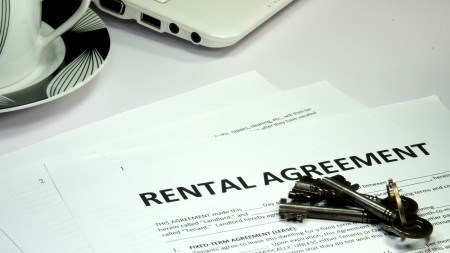There are many reasons why you might want to cancel your lease before the end of the contract period: Your employer may have asked you to transfer to work in another city, or your relationship might have ended, and with your partner's exit, you might not be able to afford rent.
Gunston Strandvik Mlabo Attorneys explain how to cancel your lease so that you can move on.
Contract
The first step is to inspect your lease contract. If it contains a cancellation clause, you have a right to cancel your lease. All you need to do is follow the procedures set out in the cancellation clause.
If there is no cancellation clause, you may still cancel if you have a mutual agreement with the landlord. If you cancel by mutual agreement, be sure to follow any other necessary requirements in the contract. For example, the contract may require that any changes be made in writing or specify the amount of notice you need to give your landlord.
Rental Housing Act
The purpose of the Rental Housing Act (RHA) is to regulate relationships between landlords and tenants. It sets out the general requirements concerning lease contracts and provides for certain provisions deemed to be important to always be included in a residential lease agreement.
The RHA stipulates certain circumstances in which you may cancel your lease when you continue to occupy your property after the fixed period of your lease has expired.
In this situation, your lease agreement will continue to operate on the same terms and conditions contained in the written document. The duration of the lease, however, will be one month and will continue on a month-to-month basis.
According to the RHA, in these circumstances, you have a right to cancel by giving one month’s notice. In terms of South African common law, this notice must be given at the beginning of a calendar month, for example, 1 June rather than 10 June.
Consumer Protection Act
The Consumer Protection Act (CPA) applies to the supply of goods and services in South Africa. The supply of residential accommodation is defined as a service, so residential leases fall under the application of the CPA.
There are only two exceptions to this rule:
- When the residential lease is concluded between two juristic persons and the lessee has an annual turnover or asset value of more than R2 million.
- When the landlord is not leasing out the property in the ordinary course of business.
The CPA entitles the lessee to cancel the lease for any reason at all by giving the landlord 20 days' written notice of the cancellation. The landlord is then entitled to charge a reasonable cancellation penalty.
The CPA also states that where its provisions conflict with any other legislation, the law that gives consumers the most protection will be the law that applies.
Common law
The common law becomes relevant if you and your landlord have not reached an agreement regarding certain terms on your lease.
It provides the default position for those areas where no specific provision has been made in the lease. For example, you and your landlord may have forgotten to agree on the number of days' written notice required to be able to terminate the lease before its agreed end. The common law provides the default position if this happens.
The common law position on this matter is that the notice must run for the duration of a calendar month. That is, from the first day of a particular month to the last day of that month. It cannot run from the middle of one month to the middle of another.
In terms of common law, the notice periods coincide with rental payment intervals. This means that if you pay rent every month, your notice must be given at least one month before you cancel.
Which law?
Because there are so many laws that affect the matter of cancelling a residential lease, it can be difficult to decide which law applies to your situation and how many days' notice you need to give.
Where there is legislation – for example, the Rental Housing Act and Consumer Protection Act - to deal with a particular problem, it supersedes the common law.
The legislation that more specifically applies to a specific situation will supersede the legislation that applies more generally.
Keep in mind that the CPA - which is not specific to leases - says that where its provisions conflict with another law, the law that provides the most protection to the consumer will apply.
If you are in doubt as to whether or not you are entitled to terminate your lease, it’s best to seek legal advice.
Writer : Sarah-Jane Meyer



